Our hair tells a story. From natural curls and coils to press and curls, our hair shares in the storytelling of our history, culture, personality, and triumphs. Some may see a simple hairstyle but its visual framework is a work of art. When reflecting back on African American culture you not only notice the stories of our trials and tribulations but you’ll see the visual storytelling in the curation of hairstyles in our culture. Each visual portrayal contained its own uniqueness in texture, style, design, and formatting.
“The history of abuse against Black people, which includes hair pulling and cutting as part of police brutality, is not that long ago,” recalls Jasmine Nichole Cobb, author of New Growth: The Art & Texture of Black Hair. “Legislative developments such as the CROWN Act, which is gaining support across states and aims to provide legal protections for wearers of textured hairstyles, addresses not only issues of discrimination in the workplace, but also the ongoing abuse of children who have natural hair,” she adds. Your personal hair journey is a glimpse into your culture; and stories of triumph and reflection.
“Wearing my Afro textured hair helped me feel a greater sense of alignment between myself and my values, both in terms of my preference for a healthy lifestyle with fewer chemicals and preservatives in my food, but also in terms of my appreciation for Black aesthetics,” Cobb continues. “As I got further into my research, I found that there was never a time since colonization where Black people’s hair was not considered fascinating to people who were not of African descent. This meant that to grow one’s natural hair and maintain it, especially for Black men, was a triumph. It is why activists like Frederick Douglass were so popular in the nineteenth century with having long, styled hair that helped signal that Douglass was a free person,” Jasmines states.
These variations in history helped to inspire Jasmine’s creation of her newly acclaimed book project of New Growth: The Art and Texture of Black Hair. Her personal interest in the history and art behind the natural hair journey sparked her research into the background findings of its culture. “I started researching this book when I lived in Philadelphia, which is a great city for Black hair. There were traditional hair salons, braid shops, and natural hair salons in addition to hair competitions and other cultural events,” Jasmine added. “I was fascinated by the growing support for natural hair that reemerged in the early 2000s as the natural hair movement took off online. At the same time, I was also curious about the persistent notion that straightened hair was associated with assimilationist politics, or “self-hate” among Black people,” she said.
Her research explored the meanings attributed to Black hair in the 21st century. New Growth is set to impact the culture and communities in many aspects. Jasmine Nichole Cobb hopes to convey the following points of impact through her new book release:
- Natural hair was used to control and subdue people of African descent during slavery;
- Black people with loc’d hair have been persecuted around the world for their hairstyles;
- Learning to embrace natural hair can help cultivate new appreciation of self and other Black people;
- Natural hair is important for how it looks, but also for how it feels and the kinds of community forged around caring for natural hair; and
- Black artists making work about hair invite us to imagine freedom in new ways.
Natural hair also sits at the intersection of wellness and one’s self-care journey. While many women are exploring self-care in greater detail these days, Jasmine adds that it’s also a part of the natural hair movement. “Natural hair is a huge part of the modern self-care journey. First, there is mounting evidence about the toxic chemicals in straightening products having a direct link to various cancers. In an age where we are encouraged to think about what we put in our bodies—eating healthy for example—natural hair is an opportunity to bring healthy habits to what we put on our bodies. There are no healthy hair straighteners,” she exclaims. “Related to this point though, modern ideas about wellness often emphasize self-love and self-acceptance. I think natural hair gives us an opportunity to explore appreciating and embracing our bodies as they are, whatever weight, whatever ability and whatever hair texture,” she continues.
“My natural hair will open new doors to healing,” Jasmines adds. New Growth will continue the conversation of natural hair not only being of historical context but of visual artistry that can express one’s wellness, culture, and place in community. Your natural hair is your statement piece that allows for continuous discussions of growth, art, and healing. Learn more about New Growth: The Art and Texture of Black Hair by connecting with author, Jasmine Nichole Cobb on all social media channels as @jasminecobbphd. Book purchases can be made through Duke University Press and wherever books are sold.


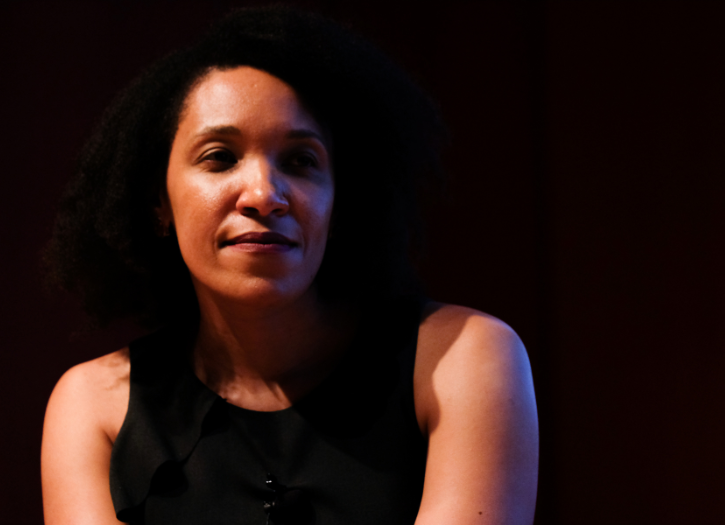
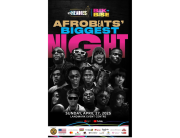
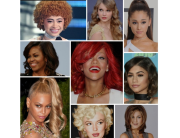
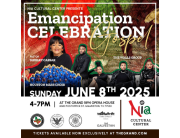
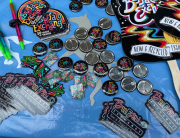

Add Comment